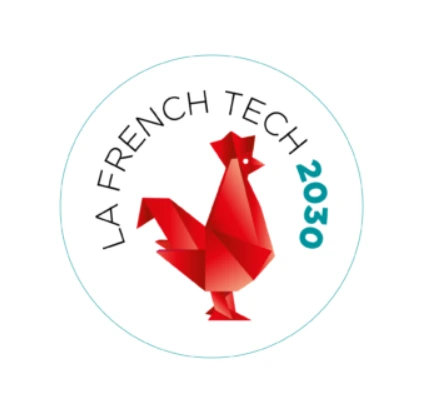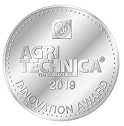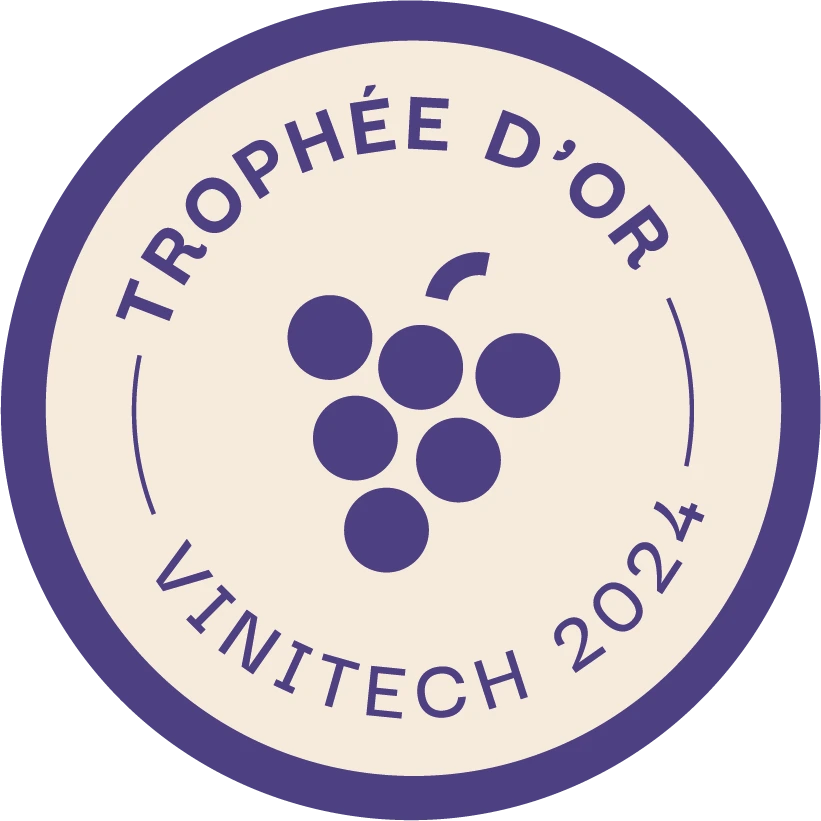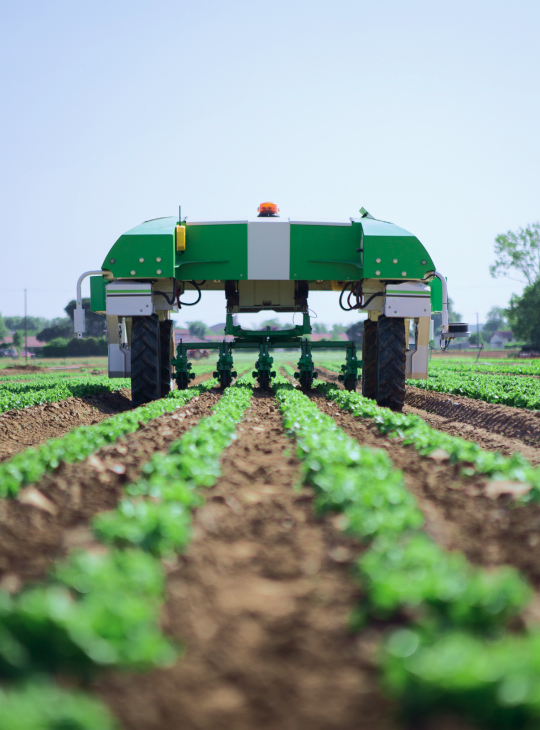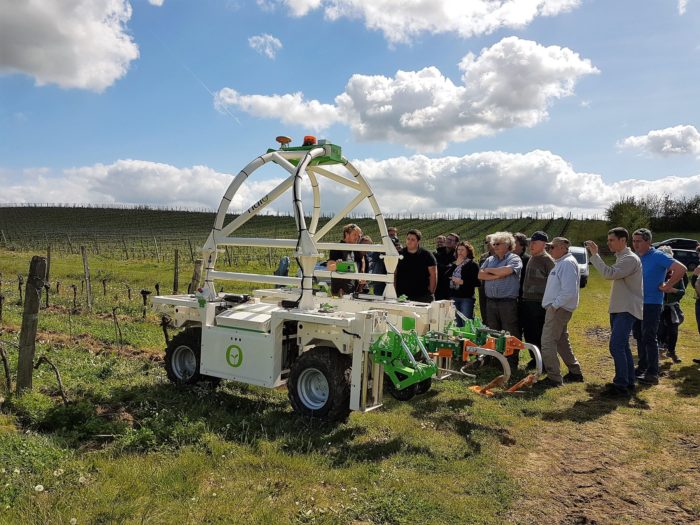
#Ted in the west – Part 1
Very active in the southwest of France, Ted the weeding robot is now involved in two major research and development projects in partnership with wine cooperatives in Gironde and Dordogne. The goal: to give producers the opportunity to test, under real operating conditions within their vineyards, an alternative to existing weeding methods, before they promulgate these new practices among their members. And all the while, Ted is allowed to grow, improve and develop progressively based on the feedback from the field. This month, the spotlight shines on the project implemented with Univitis cooperative.
A vision of the future

Univitis is one the largest organization of producers in Gironde, with not less than 230 wine-growers on over 2000 hectares of vines, and it maintains a clear focus: “We want all of our farms to be resilient over time. To that end, we have chosen to undertake an agri-environmental approach and a process of technological innovation at the same time” underlinesNicolas Helstroffer, Executive Director of the cooperative.
In this respect, Univitis has developed 4 innovation laboratories, including Vitilab that carries out projects and field experiments. At Chateau Les Vergnes, an HEV (3) certified estate that represents the showcase of the organization and is currently in the process of converting to organic farming, we have been working without CMR substances for a long time now. The effectiveness of weeding is therefore a major challenge.
“Right from the start, we wanted to engage with Naio using an approach of partnership that allows us mutual support”, points out Nicolas Helstroffer. “The idea is to take part to the evolution of the robot while pioneering a solution that may address our issues on agronomic, societal and economic levels”.
Experimentation protocol

In the course of the 2018 season, Ted has taken up residence in the middle of the estate’s 150 hectares. During the first year, it was pushed and challenged by its new environment and its own limitations. Here lies all the point of a research and development project: it provides the opportunity to experience the constraints related to a sloping ground, to different soil types or to unforeseen computer contingencies. The objective here was to overcome each obstacle to adapt the robot to the identified needs.
Since April 2019, Ted has been at work on two plots and his whereabouts have been scrutinized as part of a specific scientific protocol. “The criteria and calculation methods established with Naio include the operating speed of the robot and the quality of weeding, in comparison with rows from the same plot that are worked using the tractor. We particularly identify the difference in processing time and the rate, frequency and intensity of the weed regrowth…”statesAurélie Garcia, upstream maintainer at Univitis and crop manager at Chateau Les Vergnes. By comparing the results of Ted to those of a tractor under homogeneous working conditions – same type of soil, same grape variety, same type of tools, etc. – “Univitis will be able to draw clear and quantitative conclusions and hence assess the potential of the robotic solution”.
Expand and inspire elsewhere
The Chateau helped the emergence of an operational solution to manage the weeding of its own vines and in the same way, the R&D project is designed as a learning experience for all of Univitis members. “When we undertook our conversion to organic farming, we set up a monitoring system of the needs related to this approach. Machinery, production patterns, workforce: we regularly introduce our experiments to the wine-growers of the cooperative” explains Nicolas Helstroffer. That is the case for plant cover and the use of green manures, for example: they are first tested on the estate before being adopted by more than 80% of members once the benefits are demonstrated.
All wine-growers are involved in the transformation of their work practices and subject to the same regulatory evolutions. Aurélie Garcia adds: “We have prepared for change through organic farming and by getting our HEV certification. But not everyone is there yet, while our duty is also to prepare the future of our members by helping them make the best profit on their farms. That is why we need to determine whether the device we tested is replicable elsewhere.”
For the time being, the vast majority of Univitis cooperators are HEV (3) certified and some of them are individually converting to organic farming.
Coming next month is part 2 of this mini-series #Ted in the west. Some dozens kilometers away, a major R&D project is being developed on the vines of the Monbazillac cooperative winery, the jewel of Bergerac.
Learn more about Ted, the vineyard straddling robot.
Photo credit: Château Les Vergnes


